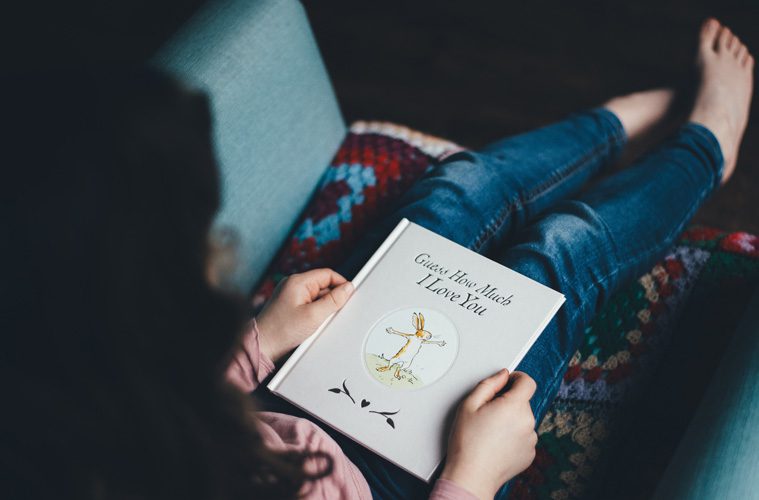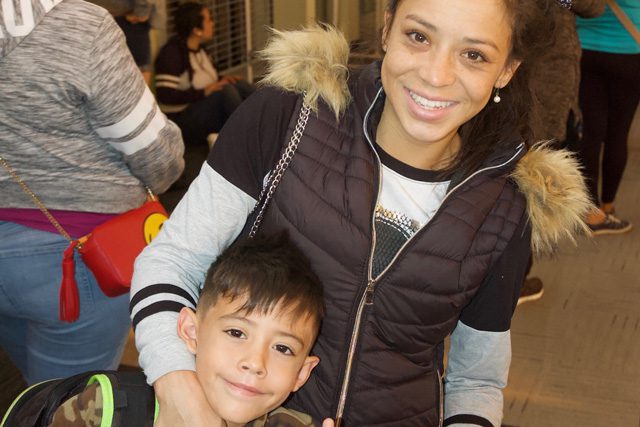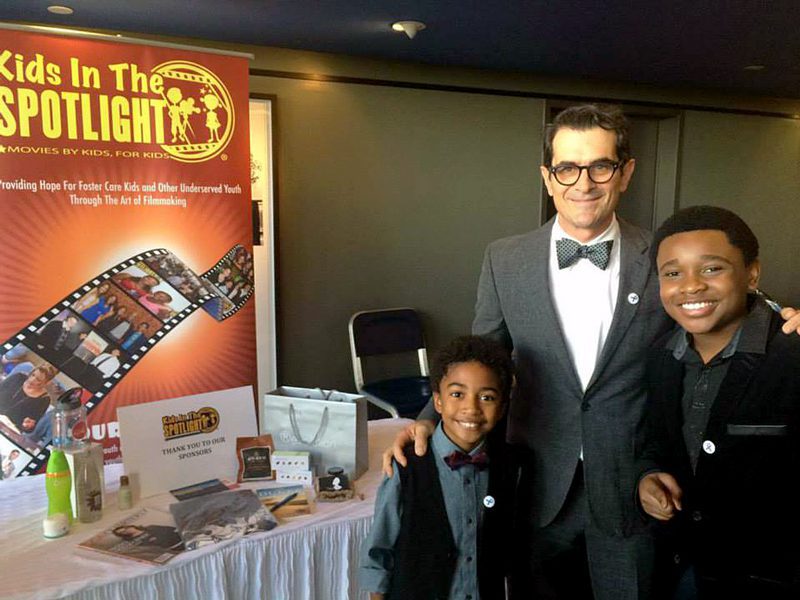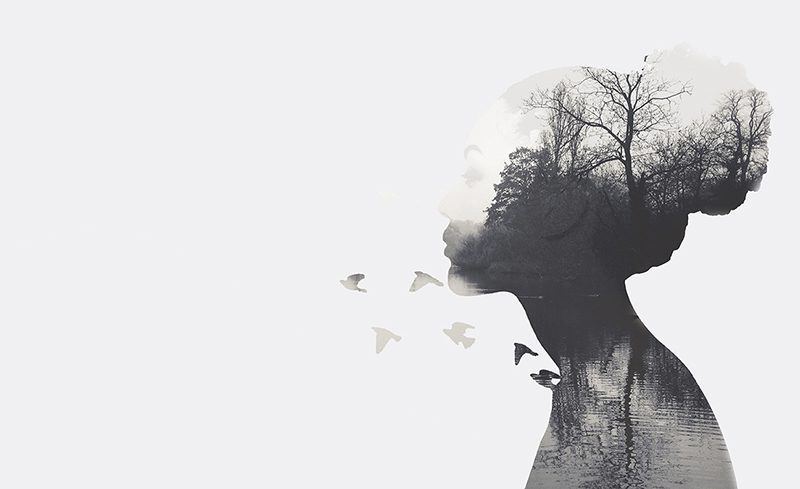Listen to this article
Listen to this article
Loading
Play
Pause
Options
0:00
-:--
1x
Playback Speed- 0.5
- 0.6
- 0.7
- 0.8
- 0.9
- 1
- 1.1
- 1.2
- 1.3
- 1.5
- 2
Audio Language
- English
- French
- German
- Italian
- Spanish
Open text
5 things children’s books taught us. our very first classroom was the nursery. our first teachers were the voices who read the lines from someone’s imagination, the ones wild with hue. children’s books have a peculiarly ingenious way of simplifying and beautifying the art of learning by taking a complex standard and turning it into a bedtime story. more than just pretty pictures and easy-to-read literature, children’s books gave us the gift of playing up the playground of a child’s creative curiosity. keep dreaming. when we first enter the world, everything is new. surfaces seemingly glitter with gold, we befriend wordless plush toys, we create worlds within worlds, we find adventure around every corner, we discover emotions like we discover colors. the car is our carriage, the box is a spaceship, the sheets transform into our palace. the way we first look at the world is pure, valuable and wonderful. everything is possible and there is only danger in silencing the voices in our heads. however, somewhere along the way of growing up, we’re told to start coloring inside the bold lines and to keep graduating from picture books to chapter books until we’re sufficient with checkbooks, and suddenly we’re a little lost in who we are because we’ve lost sight of this great, big world full of enchanted forests and deserted islands. but maybe we’re lucky. maybe one day we stumble across a fallen book in the aisle of self-help books of a little boy and his purple crayon. maybe we pick it up and flip through its pages and we follow along because simple words tell of a boy in a blue onesie who colors whatever his imagination sees so we can see it too. maybe that day we pick up our crayon along with the book and our ordinary 9-5 days are suddenly a little more extraordinary and a little less about the numbers. suddenly we notice things a little more, like the way a 5 p.m. sky after a day’s work makes our chest expand and the air easier to breathe. maybe we realize what our calendar days are not our end destination, so we start drafting and dreaming of what could be, like the little boy who dreamt of catching a star did. maybe we finally realize there is great power in perspective and perseverance in the ways our days could be according to our ability to turn imagination into a reality worth our lives. embrace who we are. remember that one time our parents packed us our favorite snacks, shared our quirky talents at the show, told of our abnormal family traditions, and then the kids laughed at us and we forever felt ashamed and mad at our parents for, “how could you let us?”. there was a time when eccentric equalled expelled. our outlandish ways made us outsiders for a time when we only ever wanted to be “in.” so we only packed crustless sandwiches and learned that perfectly-strummed song, and opened gifts on christmas morning like the rest of our kindergarten class, until we figured there was nothing more boring and meaningless than being like the rest. so we said “give it a rest,” to the rest and let the kids laugh with a defiant stomp of the foot. see, there once was a bull who didn’t fight in the ring because it just wasn’t his thing. he didn’t buck and kick, but instead smelled the flowers at a pace like honey. and that was ok. ferdinand the bull did what pleased him even though the other bulls thought it strange and unnatural. ferdinand taught us that maybe we do things that are unlikely and peculiar, but that it can make us happy. but beyond that, he taught us that maybe weird things in general are ok, so we began to embrace not only who we are, but who others are. we embrace not despite of our differences, but because of them. feel the joy of giving. it seems like delight and devotion are the best of friends, so much so that they taught us the very nature and foundation of friendship. in the previous lesson, we learned that embracing who we are—and on the path of embracing who others are—is possible because of what makes us uniquely us. friendship, then, is taking that step one further. when we realize who we are, we are best able to give who we are in a way that matters and makes others feel that they matter. the rainbow fish, with all of its shining scales, was the most beautiful fish in all the sea. but, he was lonely because beauty to him was only measured by the scales of his skin. it was only when he gave away his scales so others could taste the beauty of being like the rainbow fish, he gained the beauty of friendship, his scales adorning each and every one of his friends. he made his mark on the lives of others when he gave. likewise, the giving tree, taught us what a friendship looks like when we give and take. the tree gave and gave and gave because it kept her close to her friend. the boy took and took and took, yet still the tree remained happy to give. friendship requires sacrifice that beautifies the lives of those we give to because we know what we can give best, and that is who we uniquely are. love, laugh, lament a lot. “oh, please don’t go—we’ll eat you up—we love you so!” what a perplexing way to say “i love you,” found in the imaginary world where the wild things are. author maurice sendak follows max, a mischievous boy whose trouble sends him off to a place where he is king and monsters are his friends. emotions are complicated concepts that are important to grasp, but only by experience. we can’t quite learn to know what sadness or gladness are by definitions found in a dictionary. the best way is to live it, and boy do we live it. where the wild things are follows the feelings of max in a way that children and adults alike can relate to. he roars, he feels angry, scared, lonely and finally, truly loved, in and out of what is real and what is seemingly real. “oh, please don’t go—we’ll eat you up—we love you so!” these wild expressions from these wild things taught us that how we express what we feel inside, sometimes when it tickles us or twists our insides, is important to feel deeply because it’s our way of expressing who we are and ultimately connect us deeper to those we love. guard that little voice at all costs…. …for it might turn out to be an entire, tiny universe the size of a speck of dust. horton hears a who is about a elephant ridiculed because he heard, saw, and believed what others could not. instead of ridding himself of ridicule by casting away those voices that guided him toward his purpose of protecting those incapable of protecting themselves, he rid himself of ridicule by never giving up. we might end up putting away our childhood voices that told us to be brave against the pirate with a hook for a hand or to be the friend to the new kid in class even when everyone else didn’t. we might take those voices and put them away in a box in the attic to collect dust for a few days, months, years. but, those are the voices that have guarded and guided our courage, our individuality, our curiosity all these years. let’s give gratitude to the stories that have bid us goodnight every night for our growing up years. we aren’t done growing up yet.
Open context player
Close context player
Plays:-Audio plays count
5 things children’s books taught us. our very first classroom was the nursery. our first teachers were the voices who read the lines from someone’s imagination, the ones wild with hue. children’s books have a peculiarly ingenious way of simplifying and beautifying the art of learning by taking a complex standard and turning it into a bedtime story. more than just pretty pictures and easy-to-read literature, children’s books gave us the gift of playing up the playground of a child’s creative curiosity. keep dreaming. when we first enter the world, everything is new. surfaces seemingly glitter with gold, we befriend wordless plush toys, we create worlds within worlds, we find adventure around every corner, we discover emotions like we discover colors. the car is our carriage, the box is a spaceship, the sheets transform into our palace. the way we first look at the world is pure, valuable and wonderful. everything is possible and there is only danger in silencing the voices in our heads. however, somewhere along the way of growing up, we’re told to start coloring inside the bold lines and to keep graduating from picture books to chapter books until we’re sufficient with checkbooks, and suddenly we’re a little lost in who we are because we’ve lost sight of this great, big world full of enchanted forests and deserted islands. but maybe we’re lucky. maybe one day we stumble across a fallen book in the aisle of self-help books of a little boy and his purple crayon. maybe we pick it up and flip through its pages and we follow along because simple words tell of a boy in a blue onesie who colors whatever his imagination sees so we can see it too. maybe that day we pick up our crayon along with the book and our ordinary 9-5 days are suddenly a little more extraordinary and a little less about the numbers. suddenly we notice things a little more, like the way a 5 p.m. sky after a day’s work makes our chest expand and the air easier to breathe. maybe we realize what our calendar days are not our end destination, so we start drafting and dreaming of what could be, like the little boy who dreamt of catching a star did. maybe we finally realize there is great power in perspective and perseverance in the ways our days could be according to our ability to turn imagination into a reality worth our lives. embrace who we are. remember that one time our parents packed us our favorite snacks, shared our quirky talents at the show, told of our abnormal family traditions, and then the kids laughed at us and we forever felt ashamed and mad at our parents for, “how could you let us?”. there was a time when eccentric equalled expelled. our outlandish ways made us outsiders for a time when we only ever wanted to be “in.” so we only packed crustless sandwiches and learned that perfectly-strummed song, and opened gifts on christmas morning like the rest of our kindergarten class, until we figured there was nothing more boring and meaningless than being like the rest. so we said “give it a rest,” to the rest and let the kids laugh with a defiant stomp of the foot. see, there once was a bull who didn’t fight in the ring because it just wasn’t his thing. he didn’t buck and kick, but instead smelled the flowers at a pace like honey. and that was ok. ferdinand the bull did what pleased him even though the other bulls thought it strange and unnatural. ferdinand taught us that maybe we do things that are unlikely and peculiar, but that it can make us happy. but beyond that, he taught us that maybe weird things in general are ok, so we began to embrace not only who we are, but who others are. we embrace not despite of our differences, but because of them. feel the joy of giving. it seems like delight and devotion are the best of friends, so much so that they taught us the very nature and foundation of friendship. in the previous lesson, we learned that embracing who we are—and on the path of embracing who others are—is possible because of what makes us uniquely us. friendship, then, is taking that step one further. when we realize who we are, we are best able to give who we are in a way that matters and makes others feel that they matter. the rainbow fish, with all of its shining scales, was the most beautiful fish in all the sea. but, he was lonely because beauty to him was only measured by the scales of his skin. it was only when he gave away his scales so others could taste the beauty of being like the rainbow fish, he gained the beauty of friendship, his scales adorning each and every one of his friends. he made his mark on the lives of others when he gave. likewise, the giving tree, taught us what a friendship looks like when we give and take. the tree gave and gave and gave because it kept her close to her friend. the boy took and took and took, yet still the tree remained happy to give. friendship requires sacrifice that beautifies the lives of those we give to because we know what we can give best, and that is who we uniquely are. love, laugh, lament a lot. “oh, please don’t go—we’ll eat you up—we love you so!” what a perplexing way to say “i love you,” found in the imaginary world where the wild things are. author maurice sendak follows max, a mischievous boy whose trouble sends him off to a place where he is king and monsters are his friends. emotions are complicated concepts that are important to grasp, but only by experience. we can’t quite learn to know what sadness or gladness are by definitions found in a dictionary. the best way is to live it, and boy do we live it. where the wild things are follows the feelings of max in a way that children and adults alike can relate to. he roars, he feels angry, scared, lonely and finally, truly loved, in and out of what is real and what is seemingly real. “oh, please don’t go—we’ll eat you up—we love you so!” these wild expressions from these wild things taught us that how we express what we feel inside, sometimes when it tickles us or twists our insides, is important to feel deeply because it’s our way of expressing who we are and ultimately connect us deeper to those we love. guard that little voice at all costs…. …for it might turn out to be an entire, tiny universe the size of a speck of dust. horton hears a who is about a elephant ridiculed because he heard, saw, and believed what others could not. instead of ridding himself of ridicule by casting away those voices that guided him toward his purpose of protecting those incapable of protecting themselves, he rid himself of ridicule by never giving up. we might end up putting away our childhood voices that told us to be brave against the pirate with a hook for a hand or to be the friend to the new kid in class even when everyone else didn’t. we might take those voices and put them away in a box in the attic to collect dust for a few days, months, years. but, those are the voices that have guarded and guided our courage, our individuality, our curiosity all these years. let’s give gratitude to the stories that have bid us goodnight every night for our growing up years. we aren’t done growing up yet.
Listen to this article

















